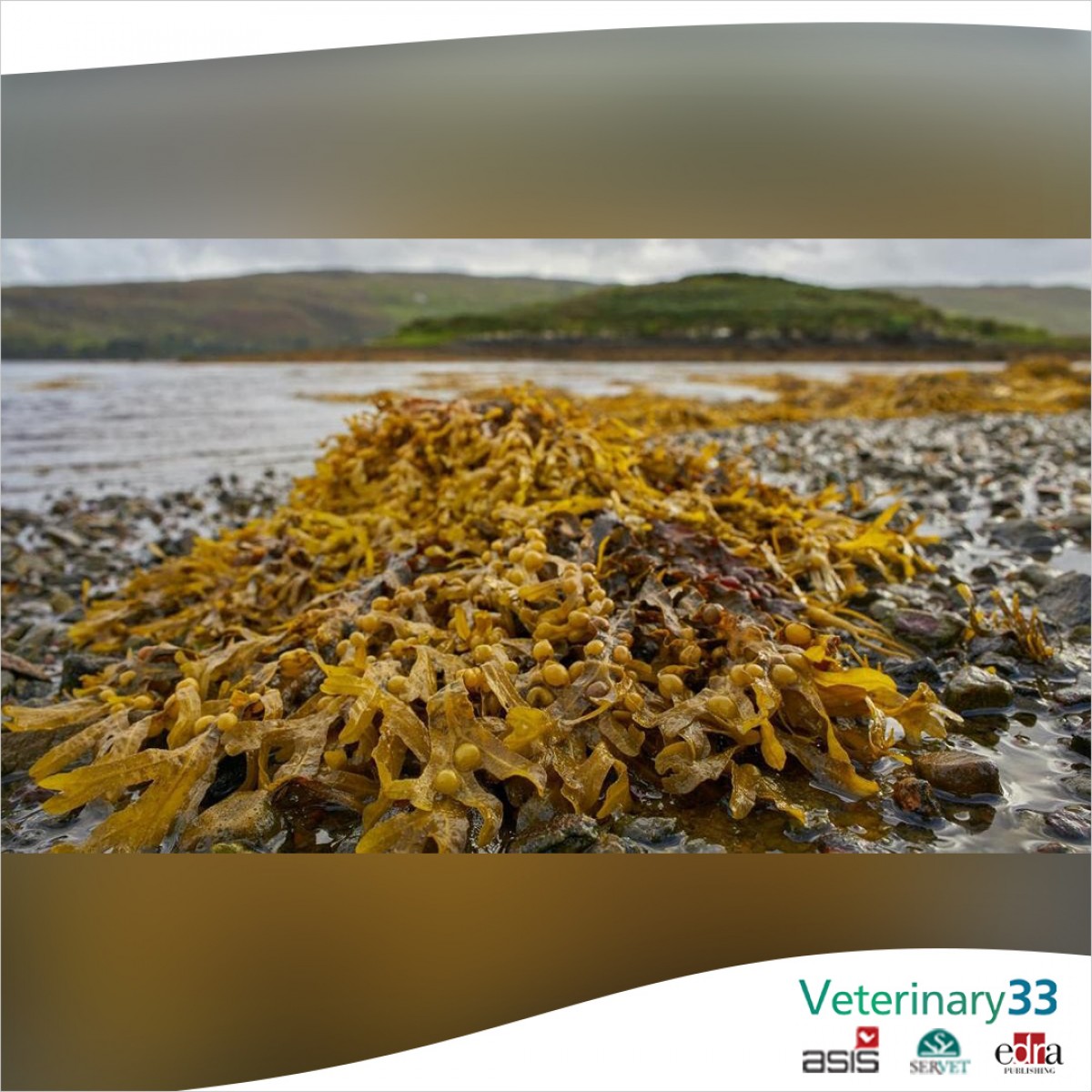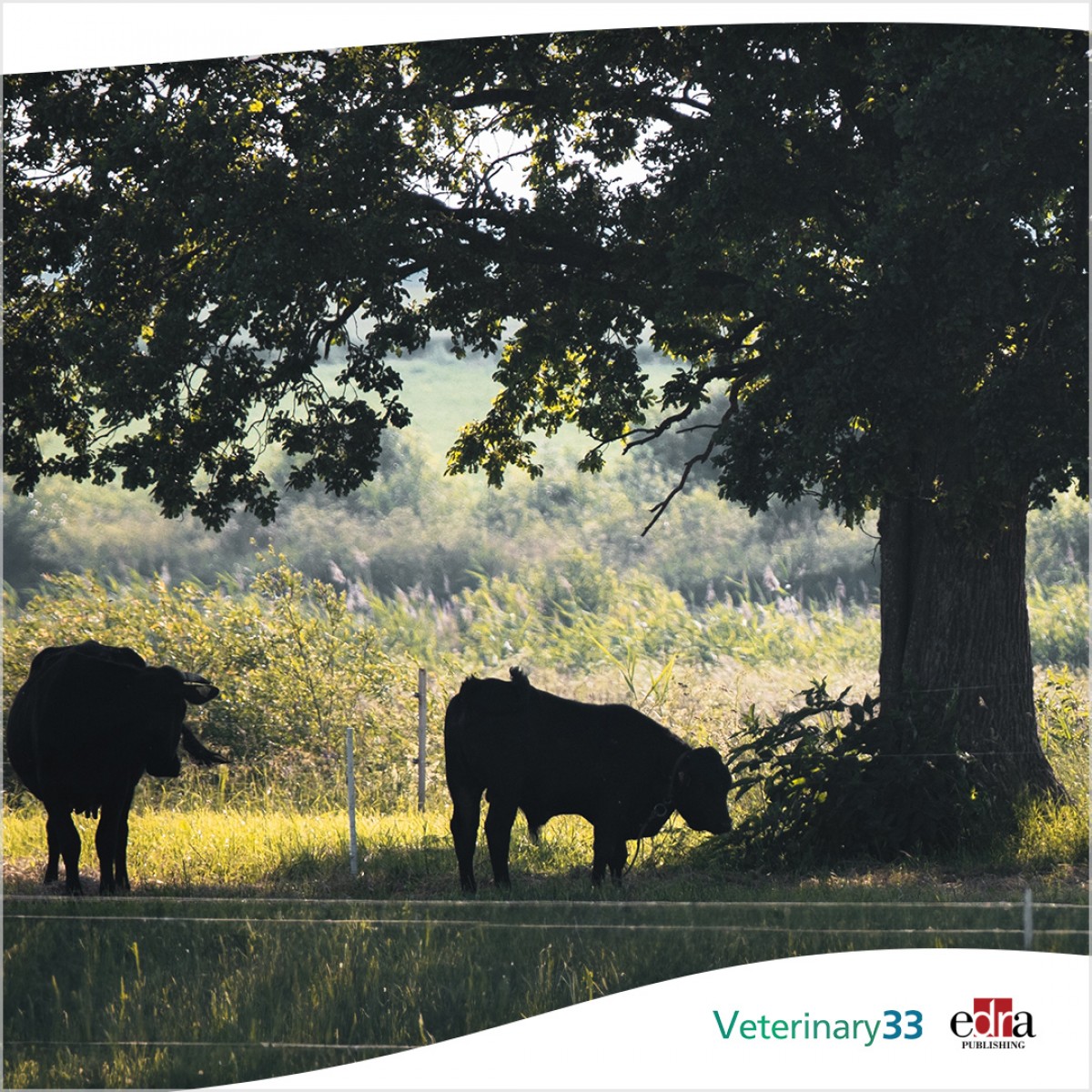Seaweed Supplements Could Significantly Reduce Methane Emissions from Livestock
Concern about reducing greenhouse gas emissions, such as methane, is the order of the day. Within the framework of the COP26 in Glasgow, the United States and the European Union have signed a Global Commitment on Methane, with which they seek to reduce the production of methane from agricultural and livestock activities by more than 30% by 2030.
To achieve this goal, there are researchers who are testing feeding alternatives for production animals. This is what they have done at the Institute for Global Food Security (IGFS) at Queen's University in Belfast, Ireland, where they are testing seaweed as food to reduce the methane produced on farms.
Seaweed has long been considered a "superfood" in the human diet, but adding it to animal feed to reduce the methane released into the atmosphere by the belching and flatulence of ruminants is a relatively new idea. Early IGFS laboratory research has shown promising results using native seaweeds from Ireland and the UK.
Previous research in Australia and the United States found up to 80% reduction in methane emissions from livestock supplemented with a variety of red algae. These algae grow abundantly in hot climates, but they also contain high levels of bromoform, which is known to damage the ozone layer. In contrast, seaweeds native to the UK and Ireland tend to be brown or green in color and do not contain bromoform.
Antibacterial compounds
Seaweed from the UK and Ireland is also rich in active compounds called phlorotannins, found in red wine and berries, which are antibacterial and improve immunity, so could have additional health benefits for animals.
Laboratory testing of IGFS is now going to take place in the field, and UK farm trials using algae sourced from the Irish and North Seas as a feed supplement for livestock are about to start.
On the one hand, a three-year project is underway with the collaboration of the British supermarket Morrisons and its network of British meat farmers, which will facilitate tests on farms. The project also includes the Agri-Food and Biosciences Institute (AFBI), in Northern Ireland, as a partner.
In a second international project with a budget of two million euros, IGFS and AFB, together with the Irish agency An Teagasc, are going to analyze the effects of seaweed in the diet of cattle. Algae will be added to grass-based silage in farming trials with dairy cows in Northern Ireland in early 2022.
In addition to evaluating methane emissions from beef and dairy cattle, these projects will assess the nutritional value of a variety of homegrown seaweeds their effects on animal productivity and meat quality.
A 30% reduction in emissions
IGFS Director Sharon Huws, a professor of animal science and microbiology in the School of Biological Sciences, said she expected the combined research to show a reduction in greenhouse gas emissions of at least 30%.
"The science is there," she said. "It's just a matter of providing the necessary data and then implementing it. The use of algae is a natural and sustainable way to reduce emissions and has great potential to scale up. There is no reason why we can't grow seaweed; this would also protect the biodiversity of our coasts".
Huws added that "if UK farmers are going to comply with a zero-carbon model, we really need to start putting this kind of research into practice. I hope that the IGFS and AFBI investigation can soon provide the necessary data and reassurance for governments to move forward."














List
Add
Please enter a comment